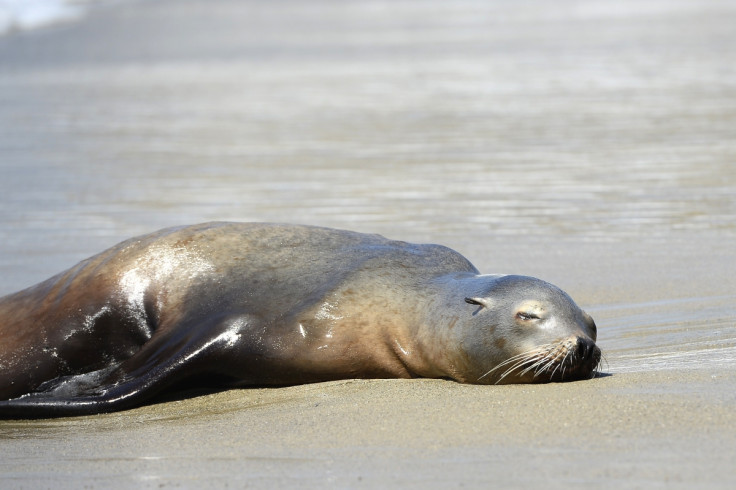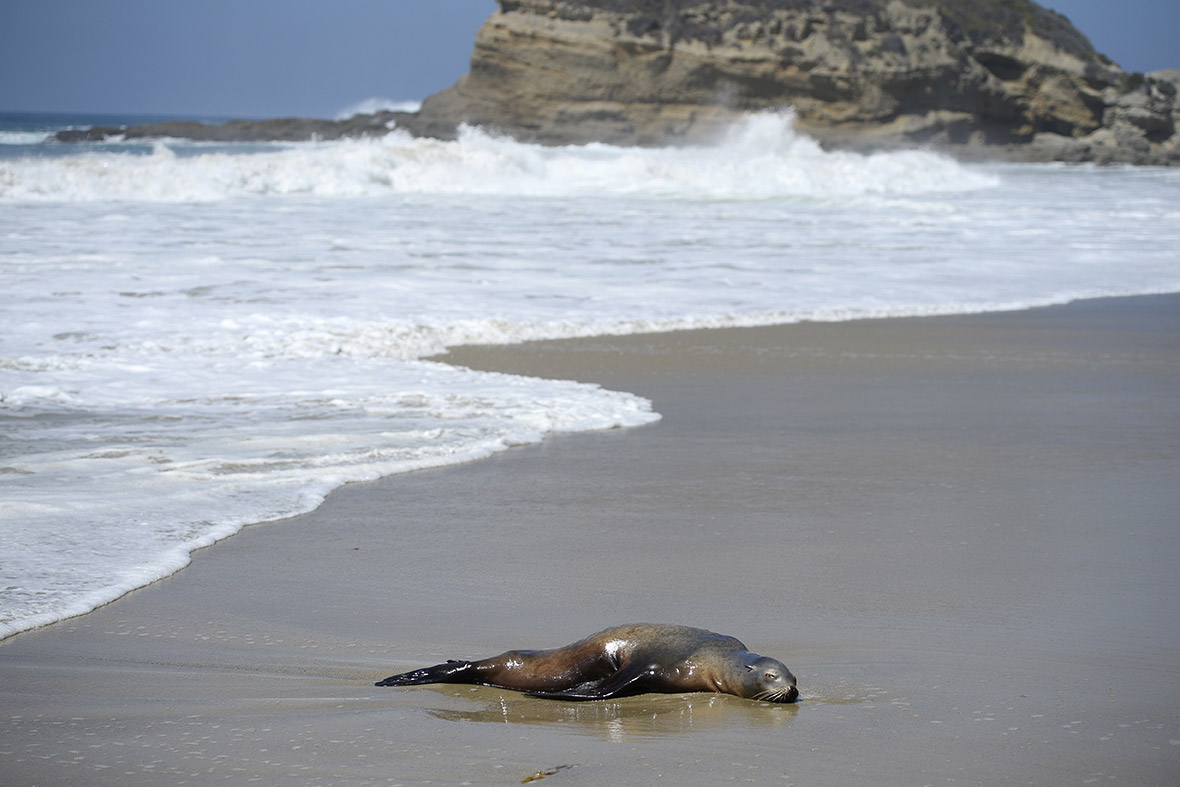California sea lions threatened by poisonous algae damaging their brains
14 sea lions have died this April from domoic acid poisoning.

A neurotoxin released by pseudo-nitzschia algae is threatening the survival of sea lions in California. This month alone, 14 animals lost their lives on the state's coasts due to harmful algae bloom, rescue centres have warned.
Domoic acid produced by algae can accumulate in fish and shellfish, potentially endangering the risk of humans and other mammals who eat them.
It is not entirely clear what environmental factors allow pseudo-nitzschia to thrive but researchers think it might be the result of a combination of ocean pollution and high temperature.
Domoic acid poisoning can be fatal to sea lions. The toxin enters their bloodstream and damages their brain which can lead to seizures, tremors and disorientation. Some sea lions end up being stranded on beaches.
Pregnant females, because they eat huge amounts of fish, are particularly at risk.
In the past month, a number of organisations in California have come out to express their concerns. "We are seeing an uptick in strandings of sea lions, particularly pregnant females, from domoic acid poisoning", the Southern Coastal Ocean Observing system said in a statement.
Beyond the 14 deaths that have already been reported by the Pacific Marine Mammal Center in this month alone, an organisation called Marine Animal Rescue said it had picked up 33 disoriented sea lions suffering from domoic acid poisoning over the same period.


When sea lions are rescued, conservationists attempt to get domoic acid out of their system, but for those that have already sustained important brain damage, it is often too late.
Although other mass stranding of sea lions linked to domoic acid poisoning have been reported at different times over the last decade, this year's events are particularly dramatic. Conservationists have indeed been surprised to see so many animals become sick over such a short amount of time.
So far, no cases of domoic acid poisoning have been reported in humans this year. However, California Department of Health has warned people against eating mussels, clams or whole scallops recreationally harvested in Santa Barbara County.
© Copyright IBTimes 2024. All rights reserved.






